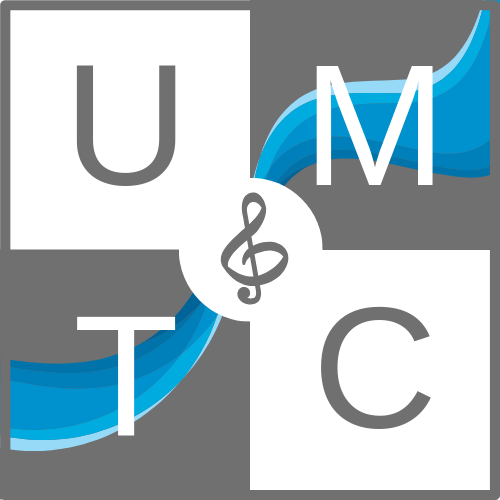This blog was written by Casey Kunzer, MT-BC On March 1st myself and my colleague Lauren had the opportunity to attend and present at SUNY Fredonia’s Mini Music Therapy Conference. Our presentation, “Becoming MT-BCs,” aimed to educate and empower student music...

Becoming MT-BCs: Presented by Casey Kunzer, MT-BC
This blog was written by Casey Kunzer, MT-BC
On March 1st myself and my colleague Lauren had the opportunity to attend and present at SUNY Fredonia’s Mini Music Therapy Conference. Our presentation, “Becoming MT-BCs,” aimed to educate and empower student music therapists as they embark on the transition from internship to the workforce. Conferences are an amazing opportunity to meet other music therapists and exchange knowledge, stories, and advice about being a board-certified music therapist. It is rare that so many music therapists are all gathered in one place, and one of my favorite things to do is hear about other music therapist’s experiences in their practice!
Music therapy is a very diverse field and a practice with a wide range of benefits. The clients, techniques, instruments, and songs therapists use can vary tremendously depending on the population they work with. A music therapist working with residents in hospice care likely has a very different day-to-day experience than someone like myself who works mostly in schools. However, I find that I always learn something from my peers. Regardless of where we work we can all bond over our shared love of music and our field. It is a very affirming experience!
While there are national and regional conferences, the conferences put on by colleges are special because the typical attendance is mostly students. I find that music therapy students bring so much enthusiasm and energy to a space. I love hearing their fresh perspectives. Many music therapy students will soon be music therapists and it is exciting to get to talk to people who will shortly become professional colleagues.
Despite not being too far from my own time as a student, I noticed that music therapy students often have lots of questions about post-graduation. As someone who has gone through that process in the past few years, it was an honor to be able to present about the transition between being a student to becoming a new professional. In addition to a Bachelor’s degree in music therapy, student music therapists must complete a 1000 hour internship in addition to passing an exam in order to be considered a board-certified music therapist (MT-BC). That process and the unknowns within it can be daunting. Being able to shed some light on that transition was an exciting experience. The attendees asked several great questions about getting internships and jobs, how to maintain professionalism, the experience of being a full time music therapist, and more. One question that I really enjoyed was: “How prepared did you feel by your educational experience to begin a career as a music therapist?” This let me reflect on my own journey and my transition into my career. Oftentimes as a more recent professional, I find that I may experience imposter syndrome. However, when examining it I realized I do feel very prepared and confident in my ability to provide great services for my students. I attribute a lot of that to my education, as well as the support of my current co-workers and supervisors. It was awesome to be able to tell the students I was presenting for that yes, I do feel prepared. Becoming a music therapist takes a significant amount of work and effort, but it is an amazing and rewarding field. I am so happy to have had the opportunity to share my experiences and love for my work with those who will hopefully be future music therapists.
To learn more about what it takes to become a music therapist, check out our blog “5 Steps to Becoming a Board-Certified Music Therapist” or “Should I Become a Music Therapist?”









